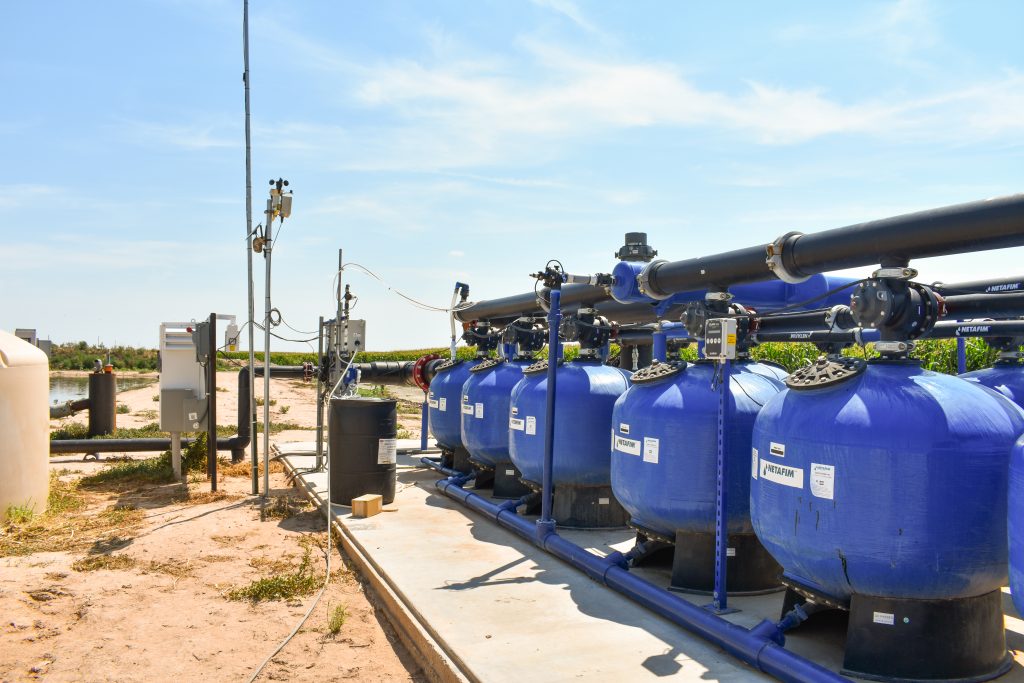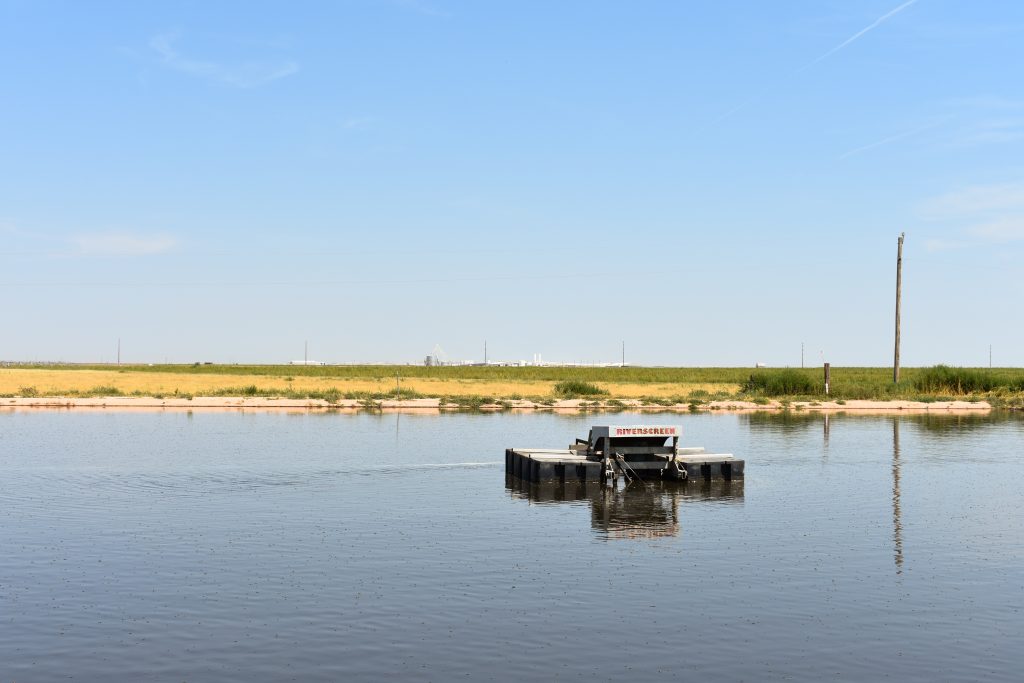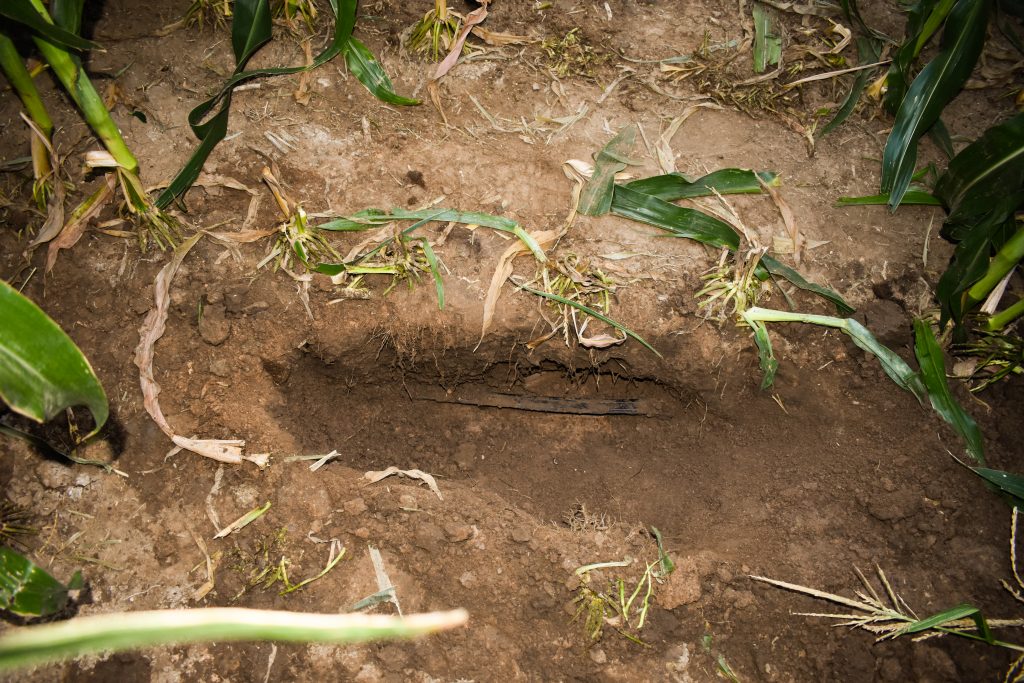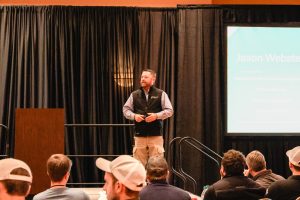If you’ve followed our content before, you may remember Dr. Bleu Schniederjan, a grower in Dalhart, Texas, who shared why he invested in Netafim subsurface drip irrigation with effluent (SDI-E). Now, we’re taking you inside his family farm to see exactly how his 400-acre SDI-E system works — and why it’s changing the way water and nutrients are managed in the Texas Panhandle.
With the Ogallala Aquifer declining and pivots requiring more water than ever, Bleu’s farm is proving that drip irrigation with dairy effluent isn’t just possible — it’s profitable and sustainable.
Partnering with a Local Dairy
Bleu works directly with a nearby dairy to source effluent:
- A buried pipeline keeps the lagoon on his grain & forage farm full during the season.
- Nutrients and biologicals from dairy manure are recycled for crop fertigation instead of wasted.
- This partnership saves on commercial fertilizer and trucking costs.
As Bleu puts it, “It’s been a win-win relationship.” The dairy gains a reliable outlet for dairy effluent, and Bleu gains a steady, sustainable nutrient source for his corn & triticale crop.
Advanced Filtration and Automation
The heartbeat of Bleu’s system is the Netafim Sandstorm filter station, designed to handle effluent cleanly and efficiently:
- A floating river screen pump draws effluent into the system.
- Flow meters and EC controllers precisely measure concentrations.
- Variable frequency drives (VFDs) adjust pump speeds automatically.
- World-class sand media filters clean water before it reaches the drip lines.
- Automatic backflushing keeps emitters clear — no constant nozzle cleanouts.
Each of the 23 zones (about 17 acres each) receives 200–240 gpm of uniform irrigation, ensuring consistent growth across the field.



Keeping Soil Healthy While Feeding the Crop
Effluent carries salts and bicarbonates that can damage soil if over-applied. With SDI-E, Bleu avoids those risks by spoon-feeding nutrients all season long:
- Water and nutrients are applied 12 inches below the surface, directly in the root zone.
- The system delivers small, controlled doses based on crop growth stage.
- This keeps soil biology active and prevents nutrient overload.
Even in 100+ degree, windy Texas weather, Bleu’s corn stays green and thriving — without leaf curling or stress silvering common under pivots.

Water Savings That Matter
The Texas Panhandle depends on the Ogallala Aquifer, one of the most depleted groundwater resources in the U.S. For farmers here, water efficiency is survival.
- Pivot averages: 18–25 inches per season.
- Bleu’s SDI-E: 11–11.5 inches of well water + 1.5 inches of effluent.
- Water savings: 35–55% less than pivots.
Better yet, the same water supply that irrigated 250 acres under pivot now covers 400 acres under SDI-E. That’s a huge efficiency gain.
Yields and Profitability
With consistent water and nutrients delivered directly to the roots, Bleu is achieving:
- Higher yields in corn silage compared to pivot fields.
- Reduced fertilizer costs thanks to recycled effluent.
- Improved nitrogen use efficiency and stronger ROI.
This system doesn’t just conserve water — it makes every acre more productive.
Why Bleu’s Story Matters
Bleu Schniederjans’s farm is a real-world example of how subsurface drip irrigation with effluent can transform farming in water-limited regions. His system highlights:
- The power of dairy partnerships for nutrient recycling.
- The ability to cut water use by nearly half.
- How SDI-E supports both soil health and crop resilience.
- Expansion of irrigated acres without drilling new wells.
Learn More About Bleu’s Journey
We’ve loved sharing Bleu’s energy and passion for farming innovation. If you haven’t already, check out his full story in our previous video and blog post.
Want to see what SDI-E could do for your farm? Contact NutraDrip today to explore subsurface drip irrigation solutions.




